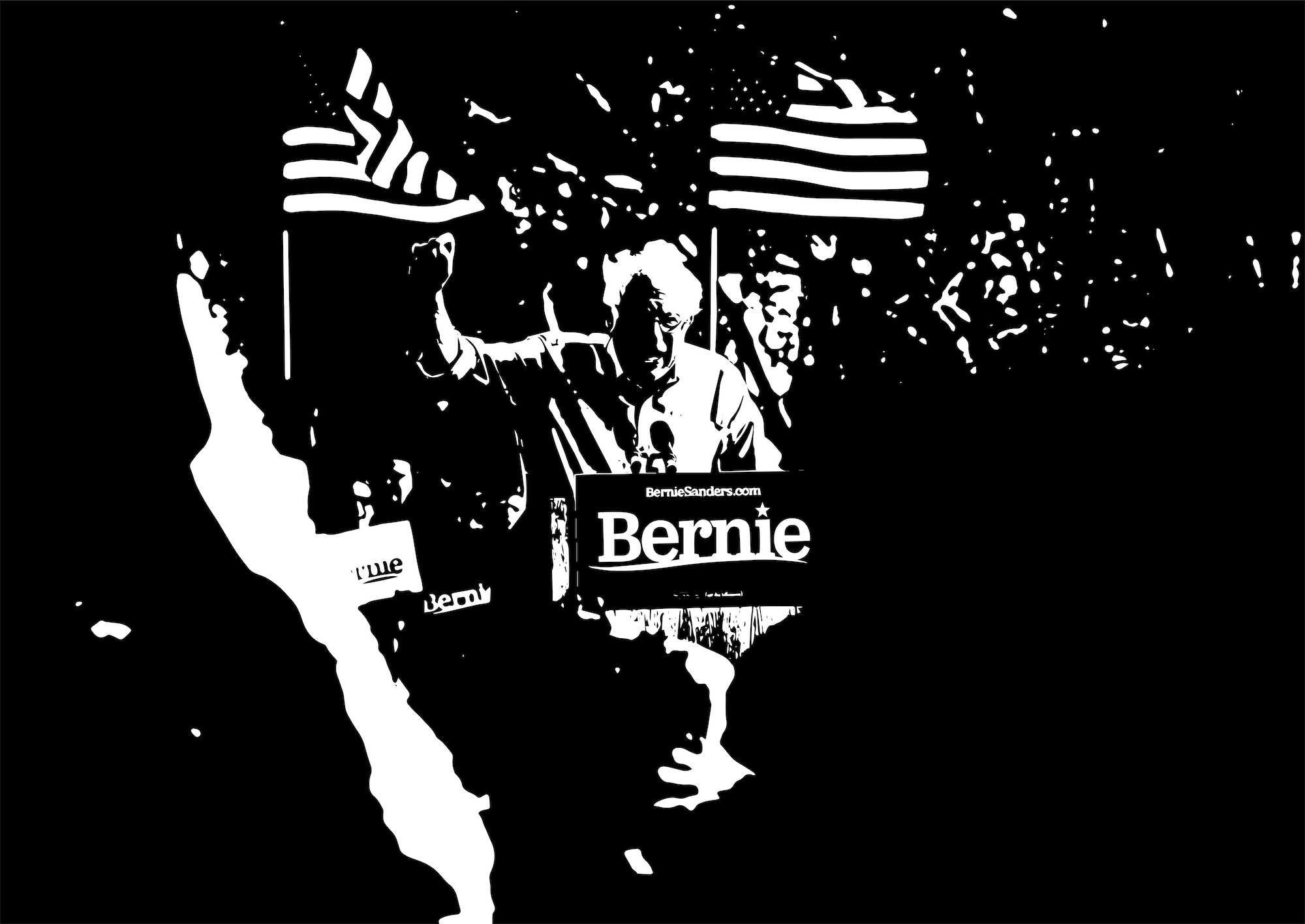Last week, the endearingly disheveled Bernie Sanders sat down for an interview with the threateningly handsome Anderson Cooper on 60 Minutes. During their chat, the (generally) anti-war Senator from Vermont affirmed that he would consider the use of military force if China were to invade Taiwan, because “we have got to make it clear to countries around the world that we will not sit by and allow invasions to take place, absolutely.” This statement is somewhat surprising — after all, Kuwait’s sovereignty was apparently not as great a concern to Sanders when he voted against the Gulf War.
Sanders has largely shunned American use of force abroad, and potential war with China seems to be a strange place to abridge that record. Moreover, the American left’s distaste for any such engagements, understandably born of years of disastrous wars in the Middle East, has veered into what some term a “nihilistic anti-interventionism,” a mantle Sanders might be expected to uphold. This single quip made before Sanders even becomes the Democratic nominee, let alone the President, cannot be said to portend some massive shift in American policy toward Taiwan. Even so, it should be a source of optimism for anyone invested in a responsible, active foreign policy in East Asia and elsewhere.
Since 1972, when Nixon initiated the process that culminated in the recognition of the Beijing-based People’s Republic of China over the Taipei-based Republic of China, the US has adopted a stance of “strategic ambiguity.” This has generally entailed calling for peaceful reunification of Taiwan with the People’s Republic of China, someday. Definitely not now, though, because Taiwan is a democracy that overwhelmingly rejects unification in the status quo, and also because that would very much stress out the US Navy. The US carefully avoids direct threats of military action, although it still regularly sells Taiwan a ton of weapons, which Sanders voted against doing in 2011.
Sanders’ staunchly anti-interventionist record would seem to make him the least likely of any Presidential candidate to embrace the idea of a war with China. After all, Sanders voted against the Gulf War as a Congressman, even though it was a relatively straightforward case of one country illegally invading and occupying another. Taiwan is not even recognized by the United States and most UN members as a country, so if anything, it would be easier to write this particular issue off as China’s “internal affairs.”
The United States, for better or for worse, wields power arguably far greater than any empire in human history, and it has made grave errors in deploying this power before.
Taiwan already has a somewhat tenuous relationship with progressives in the United States. Democrats aren’t exactly pro-Beijing, but Republican politicians have, by comparison, been much more fervent about protecting Taiwan, which conveniently serves as an excellent conduit to channel hawkish energy against China. Senator Ted Cruz, for instance, introduced legislation a few weeks ago that would allow Taiwanese diplomats and military officials to display the Republic of China flag and other official insignia when visiting the US. While quite literally just a symbolic gesture, the bill highlights the enthusiasm gap between Democrats and the GOP when it comes to supporting Taiwan.
Of course, it’s not like Sanders’ base is agitating for war with China. While no specific data on the views of his supporters regarding Taiwan has been collected, it is unlikely they are particularly concerned with defending the island. After all, many of Sanders’ supporters are young, and young Americans — most of whom have lived their entire adult lives against the background of the War on Terror — are deeply skeptical of military interventionism. Survey data this month from the Chicago Council on Foreign Affairs showed that Millennials, more so than any previous generation, are the least supportive of taking “an active part in world affairs.” (The survey did not include members of Generation Z, but they tend to align closely with Millennials politically.) Less than one-third of those surveyed said they would support the use of military force in response to a Chinese invasion of Taiwan.
So how could Sanders be so sure he’d be willing to go to war against another great power in its home waters? A tempting explanation, the standard one deployed by Beijing, is that America is fearful and resentful of a rising China, and a deep-seated, anti-Chinese prejudice has thus infected every corner of its politics. While prejudice against China is certainly an issue in the US, that is not what drives Sanders’ apparent sympathies for Taiwan (or for Hong Kong). Rather, Sanders likely understands that progressive foreign policy necessarily requires robust support for Taiwan, a vibrant, multi-party democracy of over twenty million that loves the gays and has universal, single-payer healthcare.
The United States, for better or for worse, wields power arguably far greater than any empire in human history, and it has made grave errors in deploying this power before. Nearly two decades of costly and cruel war have rattled younger Americans’ confidence that the US can be a force for good in the world at all, and such a conclusion cannot just be written off as uninformed. It is tempting for the left to overcorrect, abandoning all American engagement abroad and shunning even the consideration of military action in certain circumstances. Doing so with regard to Taiwan would be a mistake.
Jake Eberts is a freelance writer and translator based in DC.





















